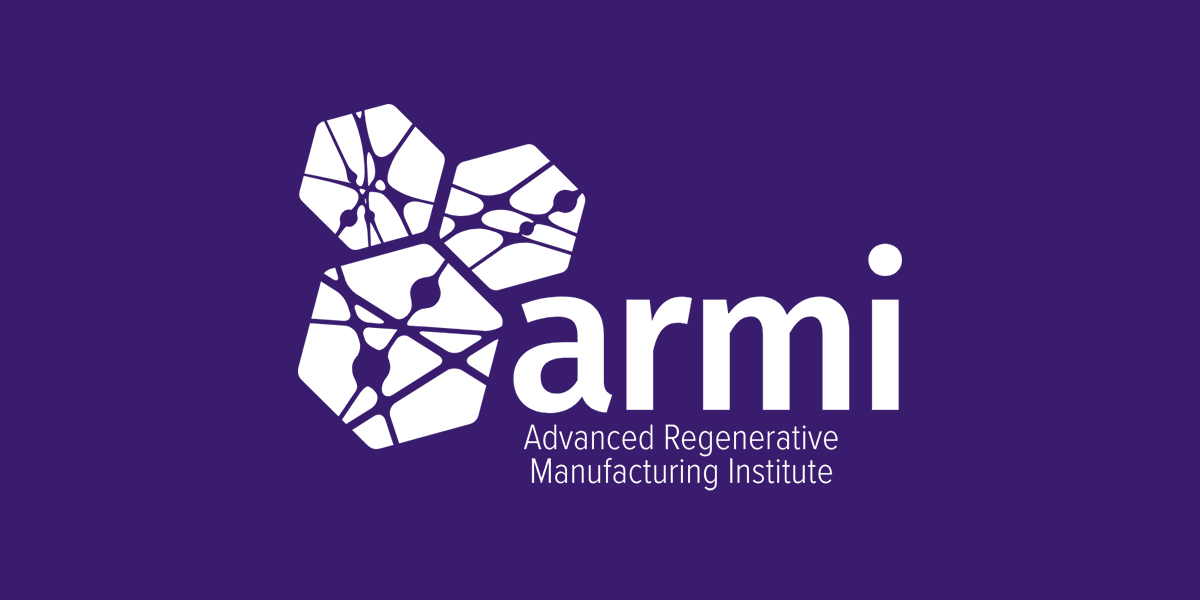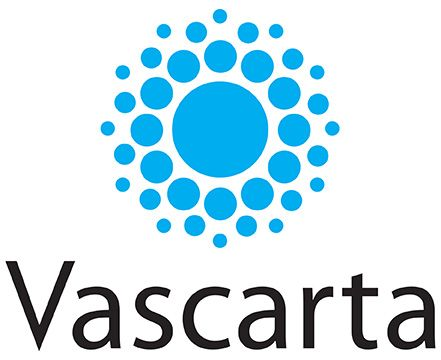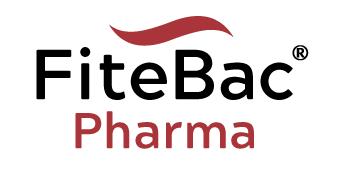Regenerative Medicine
Restoring or replacing damaged tissues and organs.
Explore MTEC Members with Regenerative Medicine Capabilities
Visit the MTEC members directory to explore organizations actively contributing to regenerative medicine research, technology development, clinical trials, and commercialization efforts. Connect with innovators, collaborate on proposals, or initiate partnerships that can accelerate the next generation of regenerative medicine solutions.
247 Members with Regenerative Medicine capabilities.

The University of Texas System is a leading public university system in the United States, dedicated to improving lives through education, health care, and research. With over 256,000 students enrolled across 14 institutions, the UT System is committed to providing affordable access to higher education and producing a skilled workforce to drive Texas's economy.

IQVIA is a global leader in advanced analytics, technology solutions, and clinical research services for the life sciences industry. With a mission to accelerate innovation for a healthier world and a vision to power smarter healthcare for everyone, everywhere, IQVIA leverages unparalleled data, transformative technology, and deep healthcare expertise to drive better patient outcomes. Operating in over 100 countries with approximately 88,000 employees, IQVIA supports pharmaceutical, biotech, medtech, public health, and government organizations with a comprehensive portfolio of services and solutions. The company is recognized for its Connected Intelligence™, healthcare-grade AI, and commitment to sustainability, innovation, and evidence-based insights that shape the future of healthcare globally. IQVIA is also dedicated to reducing health inequities and driving sustainable change through innovation, collaboration, and data-driven solutions, partnering with organizations worldwide to address complex healthcare challenges.

The Advanced Regenerative Manufacturing Institute (ARMI) is a member-based, nonprofit organization dedicated to advancing the bioeconomy of the United States. Its mission encompasses enhancing manufacturing, healthcare, and education and workforce development, aiming to create a scalable and effective manufacturing ecosystem for engineered cells, tissues, and organs.

Georgia Southern University is a vibrant institution with over 26,100 students across three campuses in Statesboro, Savannah, and Hinesville. The university offers 132 degree programs at the associate, bachelor’s, master’s, and doctorate levels, emphasizing student success, community impact, and research excellence. With a commitment to inclusivity and engagement, Georgia Southern fosters a supportive environment for diverse learners, including military-affiliated and adult students. The university is dedicated to transforming lives through education and community engagement, aligning its programs with regional needs. Additionally, Georgia Southern provides accelerated pathways for students to fast-track their master's degrees, enhancing educational opportunities. The university also emphasizes career readiness and public impact research, preparing students for successful careers and contributing to community development.

Vascarta Inc. is a pharmaceutical company that has developed a patented topical/transdermal delivery platform aimed at improving the bioavailability of drugs, particularly curcumin, a compound known for its anti-inflammatory and antioxidant properties. The company focuses on addressing unmet medical needs through innovative formulations that enhance therapeutic efficacy and patient outcomes.

Stream Biomedical, Inc. is a clinical-stage biopharmaceutical company focused on developing first-in-class targeted therapeutics for acute neurotrauma and chronic neurodegenerative diseases. The company is dedicated to revolutionizing cerebrovascular repair and developing novel solutions for neurotrauma and neurodegeneration, including conditions such as stroke, traumatic brain injury, and Alzheimer's disease.

Stoic Bio is revolutionizing the cell culture media industry by integrating sustainability into its manufacturing processes. The company focuses on accelerating research and development while minimizing environmental impact through innovative solutions like the Krakatoa benchtop media maker. This approach not only enhances the efficiency of cell culture media production but also significantly reduces greenhouse gas emissions and plastic waste, aligning with Stoic Bio's mission to create a cleaner and greener future.

FiteBac Technology/FiteBac Pharma's K21 uniquely targets the underlying disease state, given that most diseases involve microbial-associated inflammation and mitochondrial dysfunction. FiteBac Technology innovations stem from the work of numerous international academic research scientists. FiteBac Pharma K21 is the blockbuster antimicrobial small molecule designed to modulate biological, immunological, and metabolic systems for treating a wide range of infectious and inflammatory diseases. This patented drug substance has demonstrated the ability to safely eliminate bacterial, fungal, and viral infections, enhance innate immunity, induce mitophagy while improving mitochondrial and cellular metabolism, accelerate wound healing, and even promote the development of zebrafish and chickens, leading to increased adult mass. Rigorous research from Dr. Bhupesh Prusty's laboratory and Dr Christopher Rongo's laboratory is focused on various aspects of mitochondrial remodeling and reprograming, as well as mitochondrial-to-nuclear signaling with K21.

Humanetics Corporation is a clinical-stage pharmaceutical company based in Minneapolis, Minnesota, focused on developing and commercializing products to enhance human health and wellbeing. Founded in 1988, the company specializes in radiation modulators, adjunctive oncology therapies, and pulmonary protective therapies, particularly for COVID-19. Humanetics is known for its lead drug candidate, BIO 300, which is being developed as a radioprotectant for military and civilian use, as well as a treatment to improve outcomes in cancer patients receiving radiotherapy. The company is actively engaged in research programs for non-small cell lung cancer, prostate cancer, and head and neck cancers.

NervGen Pharma Corp is a clinical-stage biotech company focused on developing innovative treatments to enable nervous system repair in cases of traumatic injury and disease. Their lead drug candidate, NVG-291, is currently being evaluated in a Phase 1b/2a clinical trial for spinal cord injury, with additional preclinical evaluations for conditions such as ischemic stroke and amyotrophic lateral sclerosis (ALS). The company is also advancing a new development candidate, NVG-300, in preclinical studies.

VirTech Bio is an early-stage biotechnology company based in Natick, Massachusetts, focused on developing a human-derived hemoglobin-based oxygen carrier (HBOC) for use as a temporary blood substitute in trauma and transplantation. The company leverages expertise in hemoglobin polymerization to address critical needs in emergency medicine and organ preservation, with a pipeline also targeting veterinary and research applications. Process innovations allow scalable and contract-based manufacturing, supported by significant non-dilutive funding from the US Department of Defense and private investment.

MTF Biologics is a leading non-profit organization dedicated to saving and healing lives by honoring the gift of tissue donation. They process tissue grafts from human donors for a wide range of clinical applications, positively impacting lives globally. MTF Biologics integrates service, science, and advocacy to improve healthcare and wellbeing, while also supporting research and innovation in tissue transplantation.

Maverick Labs is a U.S.-based biotechnology and materials science company specializing in advanced protein design, synthetic biology, and microbial engineering. The company operates through three tightly integrated subsidiaries—Maverick Metals, Maverick Energy, and the Maverick Bio-Gene Therapy Translational Unit—each of which applies a shared technological foundation to tackle critical challenges across national defense, energy independence, and strategic material access. Together, they develop scalable, field-ready solutions that reinforce the United States’ industrial resilience and military readiness through biotechnology-driven innovation.

Massachusetts General Hospital (Mass General) is a world-renowned academic medical center and the original and largest teaching hospital of Harvard Medical School. Mass General is recognized for its commitment to high-quality patient care, innovative research, and comprehensive educational opportunities. The hospital operates the largest hospital-based research program in the United States, fostering collaboration among leading clinicians and scientists to bridge innovation science with state-of-the-art clinical medicine. Mass General for Children (MGfC) is a leader in pediatric care, offering more than 50 medical specialties and 15 surgical services, and is home to the only proton beam facility in New England. The hospital is dedicated to serving local and global communities, training the next generation of healthcare professionals, and advancing medical knowledge through groundbreaking research, multidisciplinary care, and a strong commitment to family-centered and equitable healthcare.

Armata Pharmaceuticals, Inc. is a clinical-stage biotechnology company dedicated to developing pathogen-specific bacteriophage therapeutics to combat antibiotic-resistant and difficult-to-treat bacterial infections. With a focus on addressing the global antibiotic resistance crisis, Armata leverages its proprietary bacteriophage-based technology to develop high-impact, best-in-class phage therapeutics. The company operates from a 56,000 square foot facility in Los Angeles, California, equipped for phage product development from bench to clinic. Armata's team of microbiologists and scientists work on discovering natural phages and enhancing them through synthetic biology and engineering to create tailored drug products for clinical trials.

The American Burn Association (ABA) is a multidisciplinary organization dedicated to improving the lives of those affected by burn injury. With over 3,000 members worldwide, ABA focuses on promoting and supporting burn-related care, prevention, education, and research. The association brings together professionals from various disciplines to advance quality care, advocate for prevention, provide educational resources, and foster research in the field of burn injuries. ABA is also recognized for its leadership in advocacy, professional development, and the establishment of best practices and guidelines for burn care. The ABA regularly hosts conferences, develops clinical guidelines, and partners with organizations to raise awareness and improve outcomes for burn survivors.

University of Pittsburgh
Topical Metformin Lotion for Tendinopathy Prevention
University of Pittsburgh study shows topical metformin prevents overuse tendon injury. This work was sponsored through MTEC project 22-02-MPAI-014.
Theradaptive
Theradaptive’s RESTORE Trial Initiation for OsteoAdapt™ DE
Theradaptive launches RESTORE Phase I/II trial of OsteoAdapt™ DE for faster, precision bone healing in craniofacial injuries. MTEC-funded study targets improved recovery for military and civilian patients.
Altec
Autonomous Rehabilitation Device for Improved Recovery in Warfighters
The OSCIR platform—developed by Altec Inc in collaboration with the Naval Health Research Center—is bringing clinical-grade, real-time movement analysis to the front lines. Funded under MTEC-22-02-MPAI
Medical Technology Enterprise Consortium (MTEC)
The Power of IP: Why It Matters to MTEC and Our Mission
MTEC President highlights intellectual property as essential to protecting innovation, attracting investment, and enabling collaboration. A new partnership with Patenter.io supports members in managing and commercializing IP.